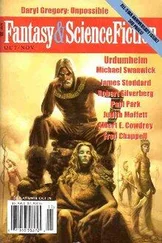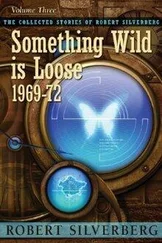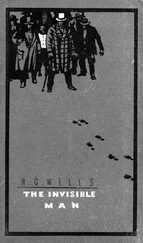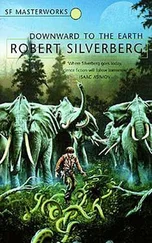Robert Silverberg - To See the Invisible Man
Здесь есть возможность читать онлайн «Robert Silverberg - To See the Invisible Man» весь текст электронной книги совершенно бесплатно (целиком полную версию без сокращений). В некоторых случаях можно слушать аудио, скачать через торрент в формате fb2 и присутствует краткое содержание. Год выпуска: 2007, ISBN: 2007, Издательство: Subterranean Press, Жанр: Фантастика и фэнтези, на английском языке. Описание произведения, (предисловие) а так же отзывы посетителей доступны на портале библиотеки ЛибКат.
- Название:To See the Invisible Man
- Автор:
- Издательство:Subterranean Press
- Жанр:
- Год:2007
- ISBN:978-1-59606-089-0
- Рейтинг книги:5 / 5. Голосов: 1
-
Избранное:Добавить в избранное
- Отзывы:
-
Ваша оценка:
- 100
- 1
- 2
- 3
- 4
- 5
To See the Invisible Man: краткое содержание, описание и аннотация
Предлагаем к чтению аннотацию, описание, краткое содержание или предисловие (зависит от того, что написал сам автор книги «To See the Invisible Man»). Если вы не нашли необходимую информацию о книге — напишите в комментариях, мы постараемся отыскать её.
To See the Invisible Man — читать онлайн бесплатно полную книгу (весь текст) целиком
Ниже представлен текст книги, разбитый по страницам. Система сохранения места последней прочитанной страницы, позволяет с удобством читать онлайн бесплатно книгу «To See the Invisible Man», без необходимости каждый раз заново искать на чём Вы остановились. Поставьте закладку, и сможете в любой момент перейти на страницу, на которой закончили чтение.
Интервал:
Закладка:
“Please,” I said softly. “No one will see us here. We can talk. My name is—”
He whirled on me, horror in his eyes. His face was pale. He looked at me in amazement for a moment, then darted forward as though to go around me.
I blocked him.
“Wait,” I said. “Don’t be afraid. Please—”
He burst past me. I put my hand on his shoulder, and he wriggled free.
“Just a word,” I begged.
Not even a word. Not even a hoarsely uttered, “Leave me alone!” He sidestepped me and ran down the empty street, his steps diminishing from a clatter to a murmur as he reached the corner and rounded it. I looked after him, feeling a great loneliness well up in me.
And then a fear. He hadn’t breached the rules of Invisibility, but I had. I had seen him. That left me subject to punishment, an extension of my term of invisibility, perhaps. I looked around anxiously, but there were no security robots in sight, no one at all.
I was alone.
Turning, calming myself, I continued down the street. Gradually I regained control over myself. I saw that I had done something unpardonably foolish. The stupidity of my action troubled me, but even more the sentimentality of it. To reach out in that panicky way to another Invisible—to admit openly my loneliness, my need—no. It meant that society was winning. I couldn’t have that.
I found that I was near the cactus garden once again. I rode the liftshaft, grabbed a token from the attendant, and bought my way in. I searched for a moment, then found a twisted, elaborately ornate cactus eight feet high, a spiny monster. I wrenched it from its pot and broke the angular limbs to fragments, filling my hands with a thousand needles. People pretended not to watch. I plucked the spines from my hands and, palms bleeding, rode the liftshaft down, once again sublimely aloof in my invisibility.
The eighth month passed, the ninth, the tenth. The seasonal round had made nearly a complete turn. Spring had given way to a mild summer, summer to a crisp autumn, autumn to winter with its fortnightly snowfalls, still permitted for esthetic reasons. Winter had ended, now. In the parks, the trees sprouted green buds. The weather control people stepped up the rainfall to thrice daily.
My term was drawing to its end.
In the final months of my invisibility I had slipped into a kind of torpor. My mind, forced back on its own resources, no longer cared to consider the implications of my condition, and I slid in a blurred haze from day to day. I read compulsively but unselectively. Aristotle one day, the Bible the next, a handbook of mechanics the next. I retained nothing; as I turned a fresh page, its predecessor slipped from my memory.
I no longer bothered to enjoy the few advantages of invisibility, the voyeuristic thrills, the minute throb of power that comes from being able to commit any act with only limited fears of retaliation. I say limited because the passage of the Invisibility Act had not been accompanied by an act repealing human nature; few men would not risk invisibility to protect their wives or children from an invisible one’s molestations; no one would coolly allow an invisible to jab out his eyes; no one would tolerate an Invisible’s invasion of his home. There were ways of coping with such infringements without appearing to recognize the existence of the Invisible, as I have mentioned.
Still, it was possible to get away with a great deal. I declined to try. Somewhere Dostoevsky has written, “Without God, all things are possible.” I can amend that. “To the invisible man, all things are possible—and uninteresting.” So it was.
The weary months passed.
I did not count the minutes till my release. To be precise, I wholly forgot that my term was due to end. On the day itself, I was reading in my room, morosely turning page after page, when the annunciator chimed.
It had not chimed for a full year. I had almost forgotten the meaning of the sound.
But I opened the door. There they stood, the men of the law. Wordlessly, they broke the seal that held the mark to my forehead.
The emblem dropped away and shattered.
“Hello, citizen,” they said to me.
I nodded gravely. “Yes. Hello.”
“May 11, 2105. Your term is up. You are restored to society. You have paid your debt.”
“Thank you. Yes.”
“Come for a drink with us.”
“I’d sooner not.”
“It’s the tradition. Come along.”
I went with them. My forehead felt strangely naked now, and I glanced in a mirror to see that there was a pale spot where the emblem had been. They took me to a bar nearby, and treated me to synthetic whiskey, raw, powerful. The bartender grinned at me. Someone on the next stool clapped me on the shoulder and asked me who I liked in tomorrow’s jet races. I had no idea, and I said so.
“You mean it? I’m backing Kelso. Four to one, but he’s got terrific spurt power.”
“I’m sorry,” I said.
“He’s been away for a while,” one of the government men said softly.
The euphemism was unmistakable. My neighbor glanced at my forehead and nodded at the pale spot. He offered to buy me a drink too. I accepted, though I was already feeling the effects of the first one. I was a human being again. I was visible.
I did not dare spurn him, anyway. It might have been construed as a crime of coldness once again. My fifth offense would have meant five years of Invisibility. I had learned humility.
Returning to visibility involved an awkward transition, of course. Old friends to meet, lame conversations to hold, shattered relationships to renew. I had been an exile in my own city for a year, and coming back was not easy.
No one referred to my time of invisibility, naturally. It was treated as an affliction best left unmentioned. Hypocrisy, I thought, but I accepted it. Doubtless they were all trying to spare my feelings. Does one tell a man whose cancerous stomach has been replaced, “I hear you had a narrow escape just now?” Does one say to a man whose aged father has tottered off toward a euthanasia house, “Well, he was getting pretty feeble anyway, wasn’t he?”
No. Of course not.
So there was this hole in our shared experience, this void, this blankness. Which left me little to talk about with my friends, in particular since I had lost the knack of conversation entirely. The period of readjustment was a trying one.
But I persevered, for I was no longer the same haughty, aloof person I had been before my conviction. I had learned humility in the hardest of schools.
Now and then I noticed an Invisible on the streets, of course. It was impossible to avoid them. But, trained as I had been trained, I quickly glanced away, as though my eyes had come momentarily to rest on some shambling, festering horror from another world.
It was in the fourth month of my return to visibility that the ultimate lesson of my sentence struck home, though. I was in the vicinity of the City Tower, having returned to my old job in the documents division of the municipal government. I had left work for the day and was walking toward the tubes when a hand emerged from the crowd, caught my arm.
“Please,” the soft voice said. “Wait a minute. Don’t be afraid.”
I looked up, startled. In our city strangers do not accost strangers.
I saw the gleaming emblem of invisibility on the man’s forehead. Then I recognized him—the slim man I had accosted more than half a year before on that deserted street. He had grown haggard; his eyes were wild, his brown hair flecked with gray. He must have been at the beginning of his term, then. Now he must have been near its end.
He held my arm. I trembled. This was no deserted street. This was the most crowded square of the city. I pulled my arm away from his grasp and started to turn away.
Читать дальшеИнтервал:
Закладка:
Похожие книги на «To See the Invisible Man»
Представляем Вашему вниманию похожие книги на «To See the Invisible Man» списком для выбора. Мы отобрали схожую по названию и смыслу литературу в надежде предоставить читателям больше вариантов отыскать новые, интересные, ещё непрочитанные произведения.
Обсуждение, отзывы о книге «To See the Invisible Man» и просто собственные мнения читателей. Оставьте ваши комментарии, напишите, что Вы думаете о произведении, его смысле или главных героях. Укажите что конкретно понравилось, а что нет, и почему Вы так считаете.












